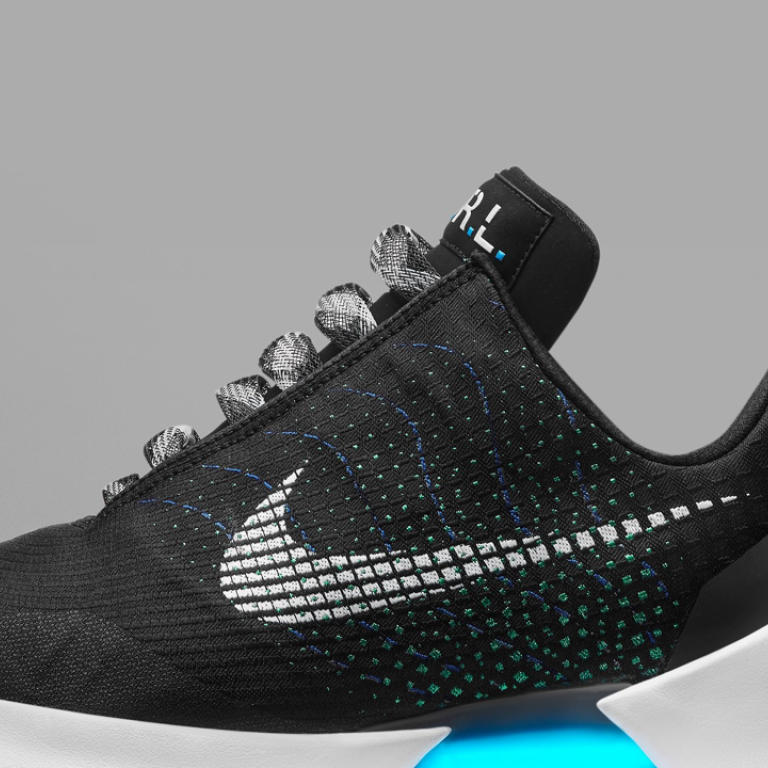
Nike’s new science fiction-inspired, self-lacing sneakers will cost US$720 a pair
Nike
To live in the future, you’ve got to pay the price.
The Nike HyperAdapt 1.0 — the first mass-market sneaker to use Nike’s new self-lacing technology — will cost US$720 a pair, a spokesperson for the company has confirmed with Business Insider.
Interested customers can make appointments to see and purchase the shoe in person starting December 1. It will come in three colours: black, white, and a black/grey.
The shoes were first announced by Nike to great fanfare at its innovation conference in March. Nike CEO Mark Parker later went on CNBC to claim that self-lacing sneakers will be as big as self-driving cars in the future, with both mainstream appeal and application.
The first shoe, the HyperAdapt 1.0, will feature the signature adaptive fit, which senses when the wearer’s foot is in the shoe using a pressure sensor, and automatically tightens the straps until it senses resistance based on an “algorithmic pressure equation,” according to Wired. Buttons near the tongue of the shoe provide customised adjustment if the shoe feels too tight or too loose.
LED lights on the sole will tell you when the shoe is tightening and low on battery charge. The shoes will need to be charged like a gadget to work. It will take three hours to achieve a full charge, which will last two weeks.
The technology took 11 years for Nike to research and develop.
“We’re talking about a project that’s maybe the most difficult in the history of footwear,” Nike VP Tinker Hatfield told Wired.
Self-lacing sneakers first entered the public consciousness in 1989’s “Back to the Future II,” which featured a futuristic version of self-lacing sneakers called the Nike Mag. Nike produced a few Nike Mag versions and raffled them off for charity, and it even sent Michael J. Fox a pair. The shoes raised a total of US$6.75 million for Parkinson’s disease research.

